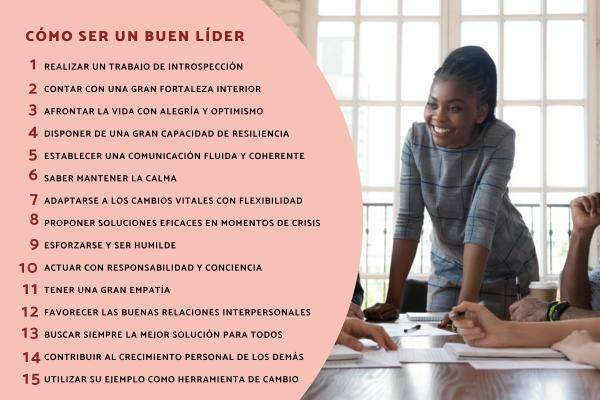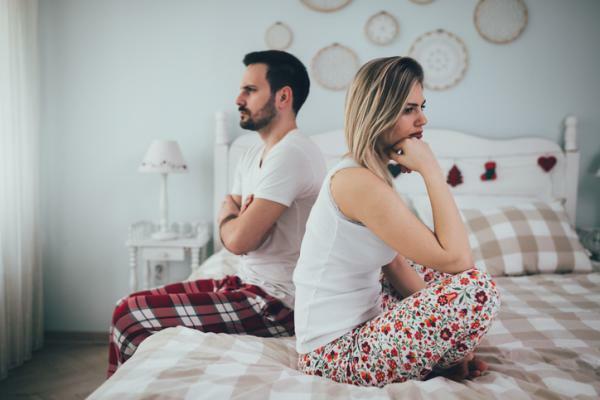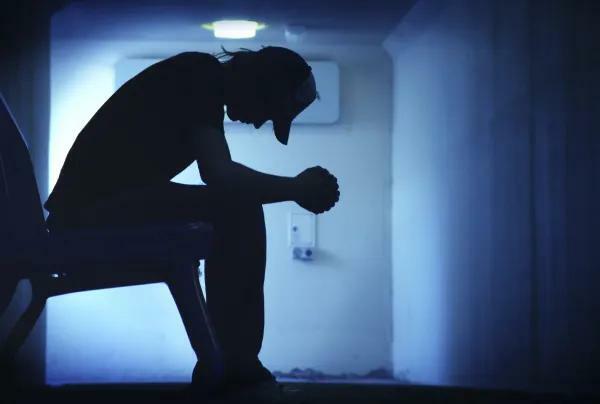
How to suppress the preoccupations and enjoy the life? How to learn to live in the present? Enjoying more is not about money. You can learn to enjoy life and think less about the future. In this Psychology-Online article, we explain how to enjoy life and of the small everyday things with psychological guidelines and life advice to enjoy the moment and be happier.
Index
- Finding pleasure in everyday life
- Appreciate routine
- Pay attention to the present
- Live consciously
- Find what we like and motivate us
Finding pleasure in everyday life.
What is the everyday? The RAE defines the everyday life What "The characteristic that distinguishes what is routine or common every day". According to H. Giannini everyday life would be the environment in which nothing "special" happens, nothing "extraordinary", pure trifles: getting up when the alarm clock rings, having breakfast, taking the bus or subway, reading the mail, etc. Thousands of gestures, small and imperceptible actions that make up the everyday. Everything happens as it should be, without surprises, without sudden changes, or breakthroughs. Christian Lalive speaks of "ritualities" or "labels" that are established in the story of everyday life, thus constituting the everyday.
According to these definitions, it seems that daily life and routine were the same, but it is not exactly like that. Everyday life is the set of facts and events that take place in the world that surrounds a person and that he or she lives and experiences at every moment of the day. In this set of facts, some are constantly repeated and form "The routine", this is, the normal, the usual and expected, and others arise in an unforeseen and unexpected way, cutting the routine and altering the "normality", either in a pleasant and satisfactory way, or in an unfavorable way. Lalive points out: “In the deepest recesses of daily life, the event disturbs the routine, its rituals and its labels and is imposed on us as the site of multiple lived (acted out) dialectics of the routine and the event". Therefore, routine is part of everyday life and is attached to it, because if both were the same we would see that today's present would be identical to tomorrow's.
Appreciate routine.
What characterizes the routine is the repetition of the same (Giannini affirms that "the routine is a return to the familiar, to the same thing"), and this regularity makes it trivial and insignificant, creating the appearance that we are in control of our life everyday. But if an unforeseen misfortune arises and the expected does not happen, something that happens more times than we would like (the train is late, the car does not start, a ankle sprain, a domestic accident, a flu, etc.), there is a breakdown of normality, a "setback", which causes uncertainty and concern. That's when the routine becomes relevant, the insignificant becomes transcendent and what went unnoticed suddenly becomes the center of our attention, and the immediate consequence is an alteration emotional (anger, frustration, fear, sadness, anxiety, etc.) that makes our day bitter and persists insistently in our mind, overwhelming and pestering until the adverse situation disappears.
It is proven that the breaking of the routine due to some setback causes discomfort and tribulation and when this disappears and the routine returns, we perceive a certain well-being. Given this fact, a reflection should be made: Why, if routine is a source of well-being, do we only appreciate it when we don't have it? (p. ex. we only remember health when we are sick). The answer is simple: routine pushes us to act most of the time "in automatic mode" (that is, in the face of the same repetitive stimulus, we offer the same answer) and we do not pay attention to other interesting things in front of us that go unnoticed, and we only remember them when we do not have.
Pay attention to the present.
Everyday life is full of pleasant stimuliSome are part of routine scenarios and others are in our environment but they go unnoticed because we do not pay enough attention to discover and enjoy them. Giannini speaks of “the possibility of stopping before the unknown, before the extraordinary, and letting myself be seduced by it, following it”. Therefore, we should not miss the things that our daily life offers us and appreciate them properly (following the famous carpe diem of Horacio). For example, some ideas to enjoy life and live in the present are as follows:
- Appreciate a fascinating landscape
- A tasty meal
- The intoxicating fragrance of a perfume
- Captivating music
- A pleasant conversation with friends
- A pleasant family reunion
- A comfortable home
- An exciting job
Live consciously.
Making everyday life pleasant and satisfying and setbacks less bitter or frustrating requires properly managing our daily lives to turn it into a “healthy” daily life, savoring the pleasant routine events and decisively facing the unpleasant ones, thus turning it into an opportunity, either from enjoy wellness that provides, or grow up in the face of disturbing events when it breaks. Properly managing daily life requires considering the aspects that we will talk about below.
Find what we like and motivate us.
Everyday life is formed through the experiences that the person has in the space-time continuum where the events of daily life take place. Therefore, two dimensions can be observed: one spatial and the other temporal.
- In the first, the space is configured through the stage, which is the physical space where all events occur (home, work, street, etc.). The stage is made up of all the elements (people, objects, environments, etc.) with which a person can enter into a relationship of any kind (personal, ideological, aesthetic, sensory, etc.) and in any moment. In the same scenario there can be multiple relationships between its elements.
- Regarding the temporal dimension, time expresses the moment in which each event takes place in a specific setting and the duration of the experience that the person has in it. The time of everyday life is the present and, since time is a continuous flow, it can be said that it is a continuous present, without interference from the past or the future.
Taking into account these two dimensions, everyday life is configured as the sum of all the scenarios that alternate throughout the successive days, and the objective of managing it will be try to spend as much time as possible in pleasant, stimulating and rewarding settings and avoid those that generate discomfort, frustrations and annoyances.
This article is merely informative, in Psychology-Online we do not have the power to make a diagnosis or recommend a treatment. We invite you to go to a psychologist to treat your particular case.
If you want to read more articles similar to How to enjoy life, we recommend that you enter our category of Personal growth and self-help.
Bibliography
- Bégout, B. (2009). The discreet power of everyday life.
- Giannini, H. (2004). Daily "reflection". Towards an archeology of experience. Santiago de Chile: University.
- Heller, A. (1987). Sociology of everyday life. Barcelona. Ed. Peninsula.
- Lalive D’Epinay, C. (2008). "Daily life: Construction of a sociological and anthropological concept", Society today.


